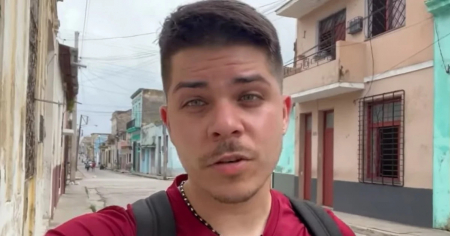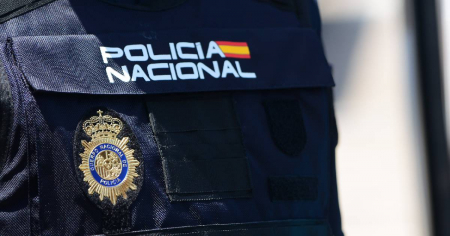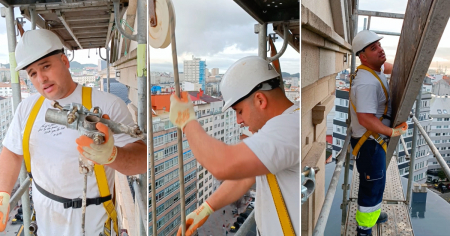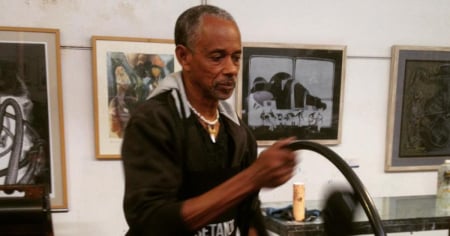"What do you prefer? Should I stay silent now that I can, or should I keep quiet?" With this question, the Cuban TikToker MirabalHumor responded to those who criticize him for denouncing the dictatorship from outside the island, accusing him of having done nothing while living in Cuba. In a video that left no one indifferent, he made it clear that no one knows his story or what he had to endure before emigrating: "First of all, you don't know me, and you don't know what I did or didn't do. On the other hand, let me ask you a question: if you're truly interested or bothered for some reason, what are you doing about it?"
The reflection did not stop there. Mirabal questioned the passivity of many on the island who remain unaware of the high emotional and other costs that emigrants pay. "Those of us on this side also lose things. We close the possibility of embracing our loved ones again, of walking the streets where we grew up, of reconnecting with who we are. We don't know when that hug will come, and sometimes it never comes. We lose the right to return without fear, knowing that something could happen to us. And you, what do you sacrifice?"
Also known for his humorous parodies—such as the life cycle of a police officer in Cuba or the celebrations of the CDR—@MirabalHumor's message, in which he asserted that despite everything he would maintain his stance, touched sensitive nerves and sparked a wave of supportive and empathetic reactions on TikTok. Many users, both Cuban and Venezuelan, shared their own experiences of exile and highlighted Mirabal's bravery. “I personally left on 11/7 and suffered a lot until I was able to flee. I have family in Cuba and I can't go back, and all the time on social media, people remind me of that”; “We lose the chance to see our loved ones, but no one talks about it. Keep moving forward, you're doing great”; “You’re absolutely right. I hear that often, and I’m right in the thick of it. I am trapped on an island, but my thoughts are free.”
Others emphasized the importance of not staying silent: "Don't stay quiet, sing, recite it, use signs, but don't stay silent"; "The one who says that doesn't know you"; "You are absolutely right. Those who criticize you are just envious." From Venezuela, Mirabal's words also resonated deeply: "I live in a dictatorial country. It's not easy to express what you think because they'll make your life miserable. What you see in the news is barely a quarter of the reality"; "As a Venezuelan, I'm in the same situation. There are people who criticize and have never done anything."
There were those who took the opportunity to reflect on the pain of exile: “Some of us lose the embrace because our parents and grandparents pass away while we are far away. That is a wound that never heals”; “It’s sad to see an island held hostage and to witness people criticizing those who take action”; “The dictatorship doesn’t just persecute, it also makes those who speak disappear. Never stay silent.”
The video by MirabalHumor made it clear that while distance does not heal wounds, it also does not diminish the commitment to freedom. In their words, denouncing is also a form of resistance and a way to remain connected with one's people, even from afar.
Frequently Asked Questions about the Critical Situation in Cuba and the Cuban Diaspora
Why did MirabalHumor decide to discuss the situation in Cuba from abroad?
MirabalHumor feels a duty to denounce the injustices of the Cuban regime and believes that his voice can be more effective from abroad, where he is not subject to government reprisals. Despite the criticism he faces for not having taken action while living in Cuba, he emphasizes the sacrifices and loss involved in being unable to return to his homeland.
What sacrifices do Cubans face when they emigrate?
Cuban emigrants, like MirabalHumor, lose the opportunity to embrace our loved ones and walk the streets of our childhood. Additionally, we face the uncertainty and fear of not knowing whether we will be able to return to Cuba without facing reprisals, sacrificing our direct connection with our culture and homeland.
What is the Cuban community's perception of the situation on the island?
The perception among Cubans, both on and off the island, is that the situation in Cuba is critical, marked by scarcity, repression, and a lack of opportunities. Many in the diaspora use platforms like TikTok to express their pain and call for empathy towards those still living under the Cuban regime.
Why do some Cubans criticize emigrants who denounce the regime?
Some Cubans criticize emigrants because they believe that being outside the island means they no longer face the same risks, or because they did not do enough while living in Cuba. However, MirabalHumor and others emphasize that distance does not diminish their commitment to freedom, and that speaking out is a valid and necessary form of resistance.
Filed under:






